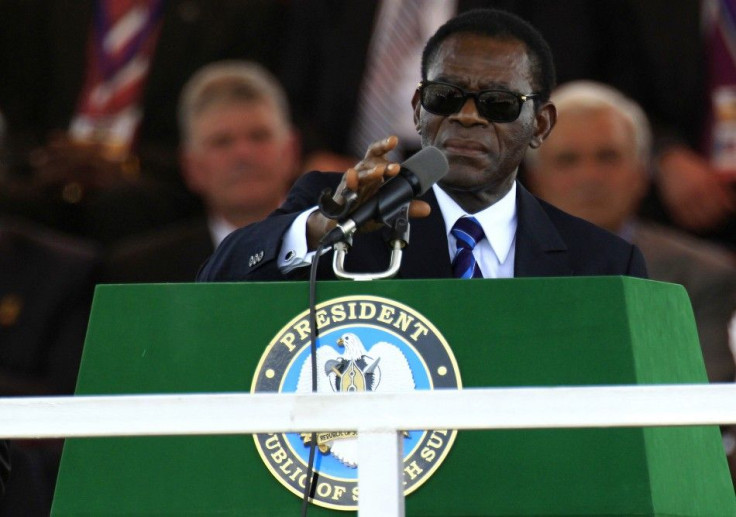Equatorial Guinea voting in favor of constitutional change

Equatorial Guinea's proposed constitutional changes are on course to be approved after virtually all the results from 60 percent of the polling stations were in favour, according to a government statement on Monday.
President Teodoro Obiang Nguema Mbasogo's government has said the reforms are meant to promote democratic advances in the oil-producing nation. But rights groups say they will instead tighten his already firm grip on power.
Obiang came to power in a coup d'etat in 1979.
The initial results from votes in country and diplomatic missions abroad gave the Yes vote about 99 percent, according to a statement on government website wwww.guineaecuatorialpress.com.
Final results will be given on Wednesday, according to Clemente Engonga Nguema Onguene, the chairman of the national election board.
New York-based Human Rights Watch (HRW) and EG Justice, an organisation that promotes greater transparency and human rights in Equatorial Guinea, have led criticism of the constitutional changes, saying they would further deprive citizens of their rights.
Obiang's government has highlighted a clause in the proposed changes that will put future limits on the number of terms a president can serve, but HRW and EG Justice said the proposals also include measures such as removing an existing age limit that would have stopped 69-year-old Obiang running for a new term after the age of 75.
The groups also say that the creation of the post of vice president may pave the way for Obiang to hand-pick his successor.
In comments also posted on the government website, Obiang dismissed critics of the reforms.
The reforms are a good step and what is good for the country is good for everyone, he said.
Equatorial Guinea became an energy producer 15 years ago and output is currently at about 400,000 barrels of oil equivalent a day.
While some progress has been made in infrastructure programmes, critics say corruption is rampant, there has not been enough progress on social programmes and virtually no progress has been made towards democracy.
Global graft watchdog Transparency International ranked Equatorial Guinea at 168th out of 178 countries in efforts to combat corruption.
© Copyright Thomson Reuters 2024. All rights reserved.











